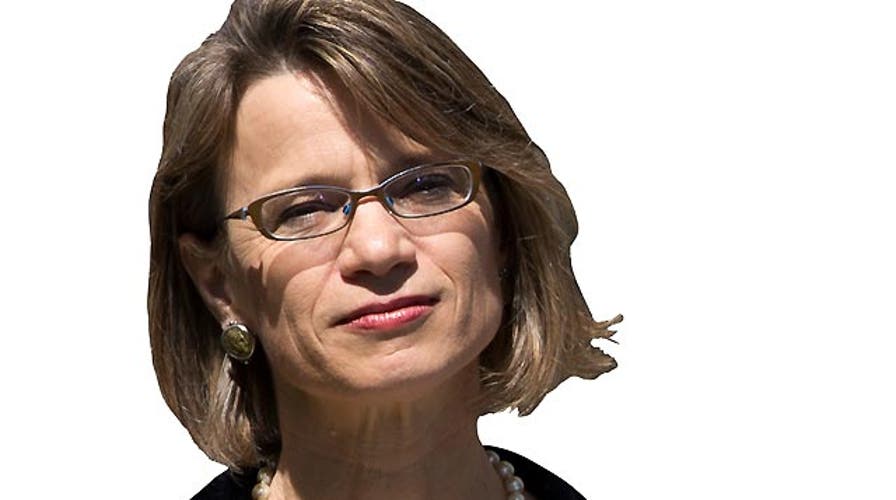Forget the debt drama. The real showdown in Washington is over President Obama's alleged push to stack the bench on a key D.C. court -- which Republicans say could be used to "rubber stamp" his agenda long after he leaves office.
At issue is the U.S. Court of Appeals for the D.C. Circuit, just down the street from its better-known Supreme Court cousin. The court is considered the second-most powerful in the land -- right behind the Supreme Court -- because it has final say on most federal regulations. Since regulations are drafted and issued in D.C., they end up before the court once they're challenged.
“The D.C. circuit is the only thing standing between America and the regulatory behemoth the president is trying to set in motion,” Carrie Severino, chief counsel and policy director at the Judicial Crisis Network, told FoxNews.com. She pointed to looming rules pertaining to everything from ObamaCare to environmental regulation. If they're challenged years down the road, the president will want his allies on the D.C. bench.
Of the 11 seats on the D.C. Court of Appeals, three are now open.
In June, Obama set the stage for a fierce partisan fight when he announced the nominations of attorney Patricia Ann Millett, law professor Cornelia “Nina” Pillard and D.C. District Court Judge Robert Wilkins to the bench.
Two-thirds of the current sitting judges were appointed by Republican presidents. The actual political makeup, though, is split -- four Democrats and four Republicans.
Some say that in order to make sure his regulatory legacy lives on, Obama must get the full Senate to green light all three of his judicial picks. Severino, who clerked at the U.S. Court of Appeals for the D.C. Circuit, accused the Obama administration of trying to “stretch the limits of the regulatory regime.”
Plus there’s another reason why judicial watchers keep their eye on the D.C. court -- it looks great on the resume of anyone seeking a Supreme Court position.
“It’s a political football because it’s seen as the preliminary battle to being on the Supreme Court,” Trey Childress, associate professor at Pepperdine University School of Law, said. “Unless you’ve done something terribly wrong, the court is widely seen as a stepping stone to the Supreme Court.”
Currently, four of the nine sitting Supreme Court justices previously served on the D.C. court: Chief Justice John Roberts, Justice Antonin Scalia, Justice Clarence Thomas and Justice Ruth Bader Ginsburg.
But as Obama pushes to install his nominees in the D.C. court, he and his supporters say Republicans are putting up roadblocks.
“Time and again, congressional Republicans cynically used Senate rules and procedures to delay and even block qualified nominees from coming to a full vote,” Obama said during a ceremony and press conference in the White House Rose Garden.
The president admits that it’s a political play that’s been used by both parties in the past. “I recognize that neither party has a perfect track record here,” he said.
Past presidents have also tried to pack the D.C. court with politically friendly judges. Legal watchers say they do it to protect their place in presidential history; allies on the bench help protect their agenda from challenges down the road.
But instead of finding fault with Obama's latest nominees, some Republicans have launched a campaign to reduce the number of judges on the D.C. circuit court altogether.
Iowa Sen. Chuck Grassley proposed cutting the size from 11 judges to eight.
Republicans say the court doesn’t need that many new faces, and claim the White House is trying to pack the bench with judges who will view Obama’s regulatory agenda more favorably.
Democrats and the White House argue that the judges who currently make up the court are ideologically stuck in the past and that the bench needs to be re-balanced to more accurately reflect the nation.
But it’s been a slow slog for the Obama administration, and he has been criticized by his base for not moving more quickly to fill the open slots. Of Obama’s three nominees to the D.C. Court of Appeals, progress has been made on only one. On Aug. 1, the Senate Judiciary Committee voted 10-8 to confirm Millet.
Millett, an appellate attorney, once held the record for the most Supreme Court arguments made by a female lawyer and served 11 years in the Solicitor General’s Office. The Alexandria resident has the support of Virginia Sens. Mark Warner and Tim Kaine. During her confirmation hearing, both Democrats spoke about Millet’s lengthy legal experience and praised her community service.
While getting Millett’s nomination out of a Senate committee was seen as a significant political hurdle, experts say the real test will come when the full Senate votes on her confirmation.
There’s a possibility Republicans could filibuster the vote which would keep it in a holding pattern for the rest of the legislative session. There has been no progress made on the confirmations of Pillard and Wilkins.
Recently, the court has come down hard on the president. In mid-August, the court ruled that the Obama administration is breaking the law by delaying its decision on whether to issue a permit for the long-stalled nuclear waste project at Yucca Mountain in Nevada. In a 2-1 vote, the three-judge panel ordered the commission to decide to either license the project or reject the application.
In June, though, the court dismissed all challenges to the Environmental Protection Agency’s greenhouse gas regulations from industry groups and a few states.





